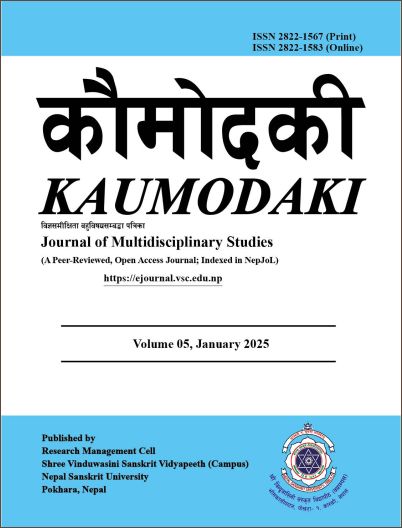Colonial Attitudes in The Alchemist
DOI:
https://doi.org/10.3126/kdk.v5i1.73644Keywords:
Colonial attitudes, cultural representation, orientalism, postcolonial theory, Western gazeAbstract
This research paper examines and analyzes the colonial attitudes embedded in Paulo Coelho’s novel, The Alchemist. The author introduces the novel through an Orientalist perspective. Santiago, the novel's protagonist, embodies a Western gaze as he navigates the foreign landscapes. He employs local characters to serve as facilitators of his growth. This dynamic perpetuates a colonial hierarchy that privileges Western knowledge and experiences over non-Western perspectives. The novel portrays non-Western cultures as exotic, simplistic, and subordinate. These reinforce stereotypes that diminish their complexities and richness. In addition to the colonial attitudes, the novel portrays the universal themes like self-discovery, personal transformation, etc. Furthermore, the study delves into the implications of spiritual universalism. This spiritual universalism frames enlightenment through a Western lens. Additionally, the research analyzes the risks of erasing the cultural specificity of the societies depicted. This study employs a postcolonial theory to explore the marginalization of a culture of the non-Western societies depicted in the text. This cultural specificity of the non-West risks the erasure of their identities and histories.
Downloads
Downloads
Published
How to Cite
Issue
Section
License

This work is licensed under a Creative Commons Attribution-NonCommercial 4.0 International License.
This license enables reusers to distribute, remix, adapt, and build upon the material in any medium or format for noncommercial purposes only, and only so long as attribution is given to the creator.




